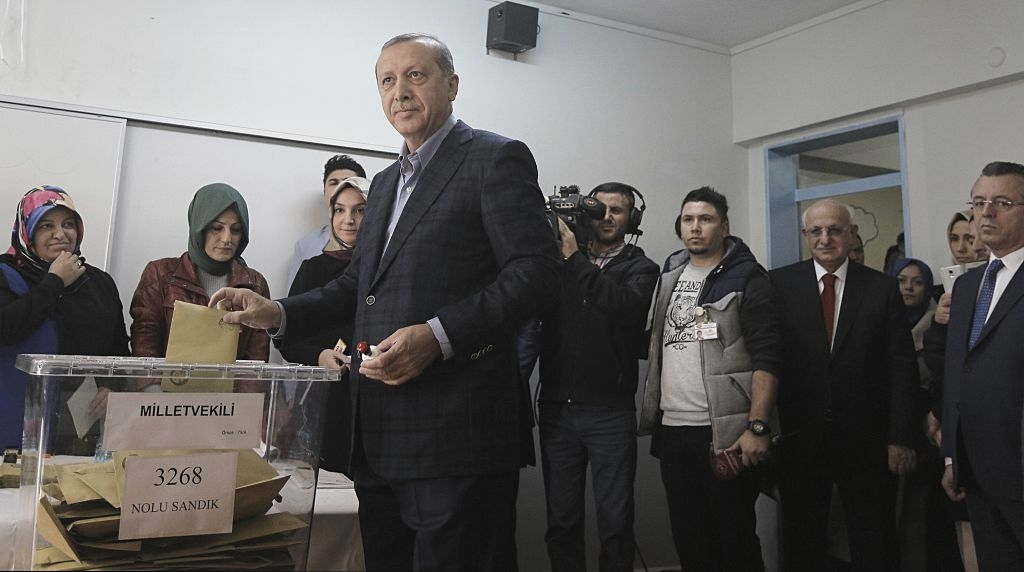The Venice Commission, the Council of Europe’s advisory body on constitutional matters, said in its opinion on Turkey’s new law amending electoral legislation that it does not represent a political consensus and “could undermine the credibility of the electoral process and the stability of the legal framework.”
The opinion on Law No. 7393, Amending the Law on Parliamentary Elections and Certain Laws of 31 March 2022, which was approved by the Council for Democratic Elections at its 73rd meeting on June 16, was adopted by the commission at its 131st Plenary Session on the basis of comments by Veronika Bilkova, Srdjan Darmanović, Katharina Pabel and Elena Kovalyova and was released on Monday.
The law amends several provisions of Law No. 2839 on Parliamentary Elections, Law No. 298 on General Principles of Elections and Electoral Rolls and Law No. 2820 on Political Parties on the eligibility of contestants for parliamentary elections and their registration, the allocation of parliamentary mandates and the formation of electoral administration bodies, as well as some aspects pertaining to voter registration and misuse of administrative resources in election campaigns.
Although the commission said it welcomed certain positive steps, such as the decrease in the election threshold from 10 percent to 7 percent, which is among the highest in Europe even after its decrease, and a new arrangement facilitating the participation of visually impaired persons in elections, it also emphasized that the amendments were adopted within a few weeks in a process that “was not fully inclusive” as the involvement of the opposition was limited and civil society was excluded from the process.
“If the process of changing the electoral rules is not sufficiently inclusive and transparent, that is if all relevant stakeholders are not involved in the proper way, new electoral rules risk being seen as intended more at favoring incumbents than at improving the electoral system,” the rapporteurs said.
They added that the brevity of the debates in parliament and the statements by opposition politicians indicated that the law did not represent a political consensus.
“Interlocutors also noted a pattern of amending the electoral legislation prior to each electoral cycle, without due procedural safeguards, which could undermine the credibility of the electoral process and the stability of the legal framework,” they underlined.
The commission also warned that the election threshold “remained exceptionally high for individual parties,” explaining that in Turkey, where seats are allocated at the constituency level and the vast majority of constituencies have fewer than 10 seats, the natural threshold has a considerable impact and makes it difficult for small parties to achieve parliamentary representation proportional to their level of support, even if they pass the national threshold of 7 percent.
According to the rapporteurs, changes to the rules pertaining to the establishment of provincial and district-level electoral boards that supervise the administration of voting did not appear to improve the integrity of the election administration, but potentially made it “more susceptible to political pressure and manipulation” by deteriorating the system’s foreseeability.
While the three most senior judges in the province were automatically appointed as members of provincial boards and the most senior judge in a district was automatically appointed the chair of the respective district-level board, prior to the amendments, they have replaced this seniority system with a lottery system, under which judicial members of the boards shall be determined “by drawing lots” from eligible judges.
The amendments were approved in parliamentary sessions held March 30-31 thanks to a large number of ruling Justice and Development Party (AKP) and its ally, the Nationalist Movement Party (MHP), lawmakers holding seats in parliament.
They came at a time of declining support for the AKP and the MHP, which make up the Public Alliance, with a growing number of public surveys showing the MHP remaining under the 10 percent threshold in a possible election.
Turkey is scheduled to hold presidential and general elections in June 2023.
Source:Turkish Minute
***Show us some LOVE by sharing it!***



